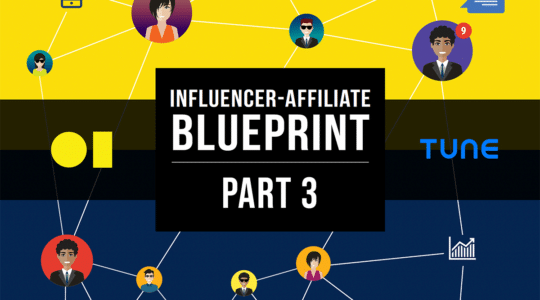 Performance marketing is here to stay. In fact, we believe pretty strongly that all marketing should be measured on performance. But that’s not to say the industry isn’t changing. Growth marketers have to weave in new technologies, adapt to changing advertising patterns and customer engagement habits, and maintain their edge to stay ahead.
Performance marketing is here to stay. In fact, we believe pretty strongly that all marketing should be measured on performance. But that’s not to say the industry isn’t changing. Growth marketers have to weave in new technologies, adapt to changing advertising patterns and customer engagement habits, and maintain their edge to stay ahead.
In this blog post, we uncover four trends in performance marketing, and what it means for you.
1. Online advertising is about to overtake traditional advertising.
Researchers estimate that marketers will spend $237 billion on online advertising in 2018. That’s about 44% of all global advertising dollars — meaning it’s a matter of time before online advertising overtakes traditional advertising (like print, radio, and television) once and for all.
Of those online ad dollars, search advertising makes up the largest segment by far, accounting for about $113 billion — which is a 12% increase from 2017 and signals it’s on the rise. And those dollars, a full 63% is being spent on mobile.
What it means for you: mobile and digital is where it’s at, and it’s here to stay. Move your budget toward digital advertising so you can not only be where your consumers spend their time, but get the most specific targeting and measurement possible.
2. Customers are becoming the new cohort.
It used to be enough to segment by cohorts or platform, but performance marketers are going to need to shift their focus to customers as individuals. Personalization is key. Research shows that personalization can reduce acquisition costs by as much as 50 percent, lift revenues up to 15 percent, and perform 42% better than non-personalized content.
To nail personalization, marketers will need to measure down to the customer across channels (web, mobile, social, and beyond) and make their messaging as targeted and relevant as possible. Dynamic content will far outperform static advertisements, so make sure you’re tapping into the power of video and voice to capture engagement.
3. AI will become an ally.
If you feel overwhelmed with measuring (and messaging) down to the exact customer… and not quite sure what AI is good for yet… this is the dream team. Marketers can use AI to better understand customer behavior, then personalize experiences accordingly. This will come in handy not only with advertising, but when engaging customers through voice and/or messaging — and accurately measuring the impact.
4. Optimization over acquisition.
Many marketers are still waiting to see how virtual reality, artificial intelligence and voice will make their mark on the industry. If you’re not feeling bullish with those technologies quite yet, use this time to perfect what you’re already doing. While customer acquisition is important, optimization is often overlooked as a key part of the equation.
“When building a brand online, too many people rush to buy ads and acquire traffic to drive revenues by brute force,” says Tony Delmercado, co-founder and COO of Hawke Media. “Small efficiency improvements in conversion rates, email capture, and retargeting can pay huge dividends — tighten up the mousetrap first, then buy eyeballs. You’ll acquire and retain customers more cost-efficiently and keep money in your coffers for higher-risk marketing strategies.”
Bottom line: it’s a matter of time before you’re going to have to start using new technologies and using them well, so make sure everything else you’re doing is dialed in before then.
Your next steps
As the industry moves away from traditional formats like print and television and into online and mobile avenues, the opportunity (and obligation) for all marketing to be measured solidifies. To grow your audience, take advantage of new technologies, tighten up your processes, and engage customers as people instead of populations.
To read more about our predictions for 2018, check out our blog post: Marketing Technology 2018: 350 Marketers, CEOs, And Influencers Predict The Future.
Author
Becky is the Senior Content Marketing Manager at TUNE. Before TUNE, she handled content strategy and marketing communications at several tech startups in the Bay Area. Becky received her bachelor's degree in English from Wake Forest University. After a decade in San Francisco and Seattle, she has returned home to Charleston, SC, where you can find her strolling through Hampton Park with her pup and enjoying the simple things in life.




Leave a Reply
You must be logged in to post a comment.